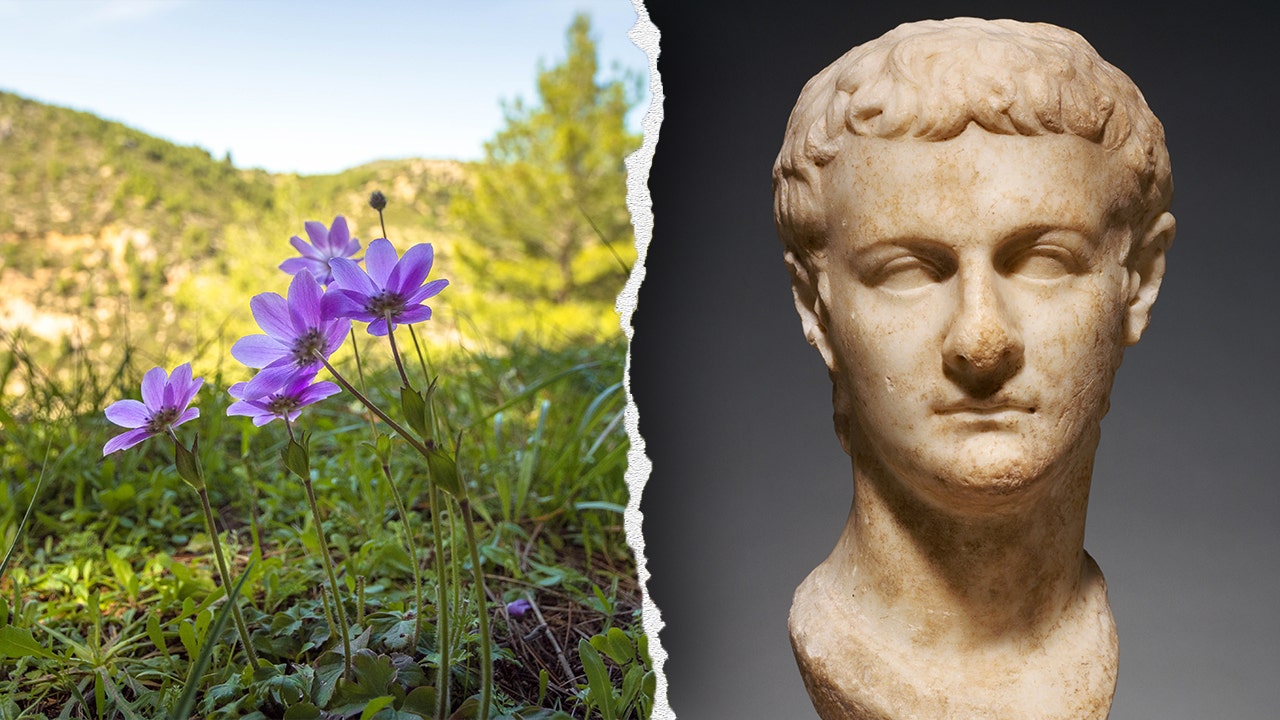Cruel Roman emperor Caligula had surprising knowledge of medicinal plants, says study

NEWYou can now listen to Fox News articles!
Caligula, the ancient Roman emperor infamous for his insanity and cruelty, may have had a soft spot for plants, according to recently published research.
A new study co-authored by Trevor Luke, a professor of classics at Florida State University, centers on an overlooked anecdote by the Roman historian Suetonius involving Caligula and an ailing senator.
The account indicates that the unnamed Roman senator traveled to the Greek town of Antikyra to be treated with the medicinal plant hellebore, which is now considered poisonous. Though the treatments were not necessarily expensive, reaching Antikyra – and staying there – was.
ANCIENT ROMAN ‘PERFUME GARDEN’ BLOOMS AGAIN NEARLY 1,900 YEARS AFTER VESUVIUS ERUPTION
When the senator asked Caligula if he could stay longer, the much-hated leader had him executed — claiming it was “necessary, for one whom hellebore had not benefited in all that time.”
The story indicates that Caligula had some knowledge of medicinal plants – a prospect that intrigued Luke, who spoke with Fox News Digital about his research.
Recent research shows that the infamous emperor Caligula may have been interested in the healing power of plants. (iStock; Heritage Art/Heritage Images via Getty Images)
When asked if he was surprised by Caligula’s interest in plants, Luke replied, “Yes and no.”
“I knew Caligula had a reputation for being a prolific poisoner, and such a murderer might be expected to possess a detailed knowledge of the properties of toxic plants,” Luke said.
“Antikyra may be the first known destination in Greece for Roman medical tourists.”
“That said, murder by poisoning was a common theme in ancient literature about bad rulers and their families,” the historian added.
Luke said that, as he dug into more ancient sources and archaeological studies, he noticed mounting evidence of Caligula’s interest in medicinal plants – which he wasn’t expecting.

Researchers say Antikyra, pictured here, may have been the ancient world’s equivalent of a medical tourism destination. (iStock)
Alexander the Great, Attalus III of Pergamon and Mithradates VI Eupator are other ancient leaders who took an interest in plants, Luke said — with Caligula possibly consulting pharmacological a text attributed to Mithradates.
ARCHAEOLOGISTS FIND PROOF OF GRISLY GLADIATOR-LION FIGHT IN UNEXPECTED TOURIST DESTINATION
Study co-author Andrew Koh noted that Antikyra was similar to the modern-day Mayo Clinic, drawing faraway people to the port by offering treatments for relentless illnesses.
“In other words, Antikyra may be the first known destination in Greece for Roman medical tourists,” Luke said.

Historians say Caligula’s interest in plants may have stemmed from fears of assassination by poison. (iStock)
“When we think of a brand-name destination for innovative and effective medical treatments, the name Mayo Clinic immediately springs to mind, just as the name Antikyra did in the minds of ancient inhabitants of the Roman Empire for similar reasons.”
CLICK HERE TO SIGN UP FOR OUR LIFESTYLE NEWSLETTER
He notes that Antikyra healers added a locally grown plant called sesamoides to their hellebore recipes, making them the safest and most effective purgative treatments at the time.
So, was the Roman emperor a “plant nerd” in the modern sense?
Luke told Fox News Digital that he doesn’t mind that label, but added that Caligula’s interest in the healing and harming power of plants wasn’t just a hobby.
For more Lifestyle articles, visit foxnews.com/lifestyle
“At the same time, any concern he had regarding assassination by poison was justifiable in the circumstances,” Luke said, pointing to the suspicious deaths of several family members, including his father-in-law Germanicus and brother-in-law Lepidus.

Hellebore, pictured here, was harvested in Greek regions like Antikyra for purging treatments. (iStock)
The classicist added, “[Caligula’s] family members took up the study of poisons and their antidotes … It seems to me that the motive of self-defense behind Caligula’s study of plants is different from just being a nerd.”
Above all, Luke suggested that modern readers should read ancient sources like Suetonius with a critical eye, noting that his stories about Caligula were “skillfully organized … in such a way that they shocked readers.”
CLICK HERE TO GET THE FOX NEWS APP
“Shock does not lead to a clear perception of the facts,” Luke said.
“When I pursue the facts behind some of the most outrageous stories about Caligula, I often find Suetonius has deftly distorted what likely happened.”
